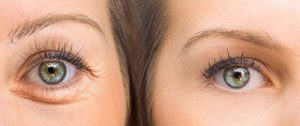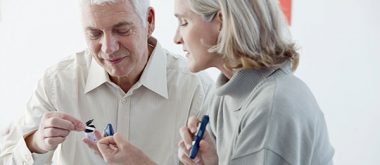Looking for a way to slow or reverse the physical aging of your skin? According to research, antioxidants may be the key.
Skin Aging A Natural Process
When it comes to aging, it is essential to remember that as much as we’d like to remain looking youthful forever, the physical skin changes and aging is a natural and generally unavoidable process. It’s a complex biological process where factors such as DNA damage and toxins build up in your body. Just being alive in the first place causes cellular damage, the same damage which results in skin wrinkles, a large culprit of everyday aging is exposure to the sun.
Sun Exposure Contributes to Age Related Damage
Skin damage is caused by a number of factors, one of which is exposure to the sun. UV rays are known mutagens, which is why prolonged sun exposure is known to increase one’s risk of contracting skin cancer. Some people worsen their progressive age-related skin damage by using tanning beds and other facilities, which only helps to worsen their age-related skin damage condition.
As collagen degrades, the bond between the dermis and the epidermis dissolves. The fibers that normally hold your skin together and keep the tight appearance go away. Because there isn’t any support to hold your skin upright, your skin begins to naturally sag.
The good news for you is that there is plenty of hope for reversing skin damage. Not only can sunscreen help prevent additional skin damage which comes as a result of sun exposure by acting as a natural barrier against UV rays, certain compounds of antioxidants can reverse a good portion of the skin damage that has happened over time.
How Antioxidants and Cell Regulators Help Aging Skin

While antioxidants help reduce collagen degradation, cell regulators, such as retinols, peptides and growth factors, have direct effects on collagen metabolism and influence collagen production.
When it comes to skin health, collagen plays a large role in achieving the youthful appearance, and free radicals are the compounds that are directly responsible for attacking your body’s collagen fibers.
Vitamin C, B3 and E, contain the highest antioxidant concentration when it comes to the ability to penetrate the skin and fight off free radical damage. It is because of this that topical agents containing these components can be most effective in treating skin aging. In one study, topical application of green tea polyphenols before UV exposure was found to provide an increase of the minimal erythema dose, a decrease in the number of Langerhans cells and a reduction in DNA damage in the skin.
Understanding How to Treat and Protect the Skin
Skin aging is a complex and ultimately expected process however there are some important anti-aging strategies that dermatologists recommend for keeping your skin healthy and appearing youthful.
As a basis for maintaining healthy skin proper daily skin care routines is essential. This can include a variety of factors including correct sun protection and sunscreen usage, topical antioxidant and cell regulator agents, and avoiding exogenous aging factors such as smoking, stress, poor diet, poor sleep, etc.
When it comes to daily routines, key combinations of antioxidants and cell regulators to include are:
Vitamins C and E –
Clinical studies have proven in combination provide greater antioxidative protection than with the vitamin C or E alone.
Cell regulators, such as vitamin A derivatives, polypeptides and botanicals –
These components act directly on collagen metabolism and stimulate the production of collagen and elastic fibers. Through topical application, polypeptides have the ability to stimulate collagen synthesis, whereas retinol, a substance that is most often used as an anti-aging compounds, can induce the biosynthesis of collagen.
More extensive approaches for treating aging skin include chemical peels, IPL skin rejuvenation, injectable biorejuvenation fillers, and even hormone replacement therapies.
Whether you are looking to prevent future skin damage or repair aging skin, one thing is for sure that most dermatologists will agree with and that is, that including regular antioxidants in your daily routines can help fight free radical damage and can be a great starting point for maintaining healthy skin.





